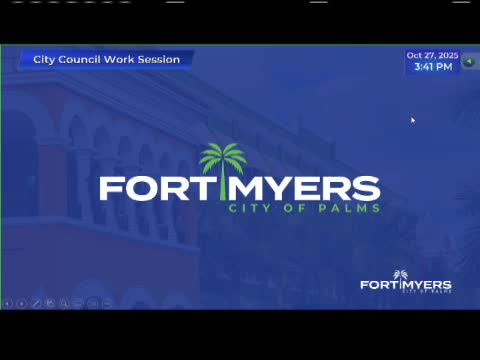City staff recommend vendor agreement for municipal electric‑vehicle charging network; revenue projection included
Get AI-powered insights, summaries, and transcripts
Subscribe
Summary
Public Works staff recommended a vendor‑funded EV charging deployment (48 ports: 24 Level 2 and 24 DC fast chargers) with no city capital cost; vendor proposes to pay electricity and maintenance and projects modest revenue to the city.
Public Works presented results of a solicitation to install and operate municipal electric‑vehicle (EV) charging stations and recommended a vendor‑funded model that would require no city capital investment and provide revenue to the city.
The topic matters because the city currently lacks widespread public charging infrastructure and councilmembers identified EV charging as a tool to support mobility and economic activity downtown and in municipal lots.
Director Pete Bennett said the RFP attracted multiple proposals and the selection committee recommended Positive Energy (vendor name in staff materials) for a 10‑year term with an optional five‑year renewal. The recommended deployment in the initial phase included 48 ports (24 Level‑2 ports and 24 DC fast‑charging ports). The proposal called for vendor responsibility for siting, permitting, design, installation, operations and maintenance; the vendor would pay all electricity costs. Initial driver rates proposed in the staff summary were 39¢ per kWh for Level‑2 and 49¢ per kWh for DC fast charging. Staff reported an assumed 18% utilization rate and projected annual revenue to the city in year one of about $147,000 and about $162,000 in year two under the proposal.
Bennett said vendors would provide remote diagnostics, 97% uptime targets and a 24–72 hour typical repair window; vandalism or graffiti remediation was included. The vendor would also integrate with public charging maps and driver apps and could expand charging locations over time. Staff said the parking fund was a potential repository for city revenue from the program, and that the vendor would handle technical and electrical upgrades where needed.
Councilmembers asked about electrical utility upgrades and whether equipment could accommodate e‑bikes or municipal fleet electrification; Bennett said the vendor would evaluate site electrical needs and could propose infrastructure to support municipal fleet charging. Staff will bring a formal contract for council approval at a future meeting.
